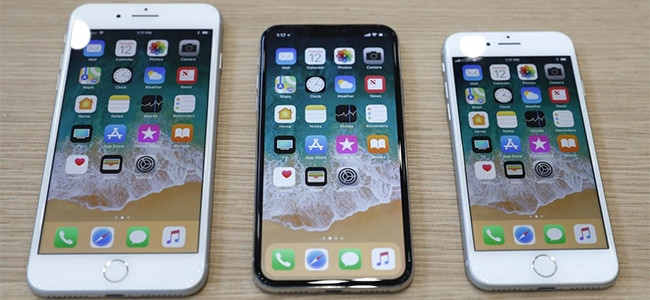
South African mobile handset users are content with their Apple iPhone, despite the smartphone's high price.
This is according to the latest South African Customer Satisfaction Index (SAcsi) for mobile handsets, conducted by consultancy firm Consulta.
With an overall SAcsi score of 84, Apple is well above the industry average of 79.7, and 0.5 points ahead of its 2016 score of 83.5.
Apple's latest flagship devices were last week officially made available to purchase in SA. The recommended retail price starts at R13 499 for the 64GB iPhone 8 and R16 499 for the larger 265GB version, while the iPhone 8 Plus models will sell for R15 499 and R18 499.
Huawei ranks second with a 4.1 point jump to 81.3, followed by Samsung, which scored 80.4 (up 0.9 points since 2016).
Other handset manufacturers - including Sony, BlackBerry and LG - saw an overall decline in customer satisfaction to 75.1 in 2017, down from 77.5 in 2016 and 82.4 in 2015. There were inadequate samples for brands in the "other" category to be individually detailed.
Customer expectations
Now in its fifth year, the SAcsi for mobile handsets offers impartial insights into the South African mobile handset industry by measuring the customer's overall satisfaction. This satisfaction score is based on brands exceeding or falling short of customer expectations and the respondents' idea of the ideal product to achieve an overall result out of 100.
The measurement includes the Customer Expectations Index, Perceived Quality Index and Perceived Value Index. The sample included 1 405 mobile phone users who were randomly selected to participate in the 2017 survey.
"Although Apple and Samsung have maintained their dominance in the minds of their customers, Huawei has made strong inroads to grow its market share since last year," says Consulta CEO professor Adr'e Schreuder.
"While the Chinese brand [Huawei] offers a high-quality smartphone at a more affordable price, it's moved beyond the focus on display and camera quality to position itself as a pioneer in artificial intelligence (AI) capability."
Apple maintained its position with the highest perceived quality score of 89.3 (up from 88.7 in 2016), followed by Huawei with 85.8 (up from 80.4). Samsung's perceived quality score remained stable at 83.6, while the overall industry's perceived quality increased from 82.7 to 83.8.
The collective perceived quality score for the rest of the industry, apart from the three main brands, was below par at 80.4, which is lower than their collective 2016 score of 80.5 and 2015 score of 85.3.
"Apple's brand perception across a variety of linked devices such as tablets, laptops and watches has contributed to customers viewing it as a high-quality brand that meets their needs in a reliable way. However, Huawei is looking to firmly establish its reputation as a premium product as it increases its service and maintenance footprint in South Africa," says Schreuder.
Overall industry customer loyalty has increased from 71.6% in 2015 to 72.3% in the 2017 survey, after dropping to 70.2% in 2016. However, in that same period, Apple experienced a decline from its 2015 high of 80.9%, to 76.1% in 2016 and 77.9% in 2017.
While Apple customers remain the most loyal, the survey revealed their biggest complaints were about the time taken to download software updates, data usage and service quality (repairs).
BlackBerry demise
Samsung is marginally down from its 2015 loyalty score of 75.1%, although its score is up from 73.7% in 2016 to 74.1% in 2017.
Customer loyalty to Huawei, which was first measured in 2016, jumped from 65.6% to 73.4% in 2017. The loyalty level in the rest of the industry dropped drastically from 75.2% in 2015 to 67.2% in 2016 and 64.4% in 2017, largely due to the demise of BlackBerry, which historically held significant market share in SA.
A popular metric for measuring a brand's performance is the Net Promoter Score (NPS), which measures the likelihood that customers will recommend a brand to their family and friends (promoters) compared to customers who would actively discourage a relationship with the brand (detractors).
Apple achieved the highest NPS of 55%, which is 11.7% higher than the industry average of 43.3%. Huawei scored the next highest NPS of 49%, followed by Samsung on 45%. The rest of the industry scored a collective NPS of a low 29%.
Share